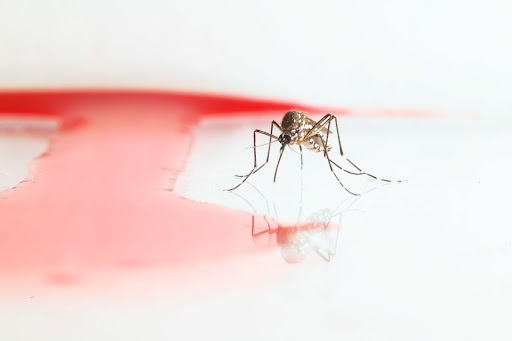
Although it first appeared in the West Nile region of Uganda, West Nile virus is now the leading cause of mosquito-borne disease in the continental United States. Last year, twelve Indiana residents fell ill with the virus and one died, according to the Centers for Disease Control and Prevention (CDC).
Now, along with Purdue University and Indiana University (IU), the University of Notre Dame will join the fight against West Nile and other mosquito- and tick-borne diseases as part of the Midwest Center of Excellence for Vector-Borne Diseases (MCEVBD). The center was first established in 2017 with member universities in Wisconsin, Illinois, Iowa, Michigan, and Minnesota. With an additional $10 million of funding from the CDC for the next five years, the center will now include three leading Indiana research universities as well.
The MCEVBD’s work compasses all aspects of how to better control mosquitoes and ticks. Each academic member of the center works closely with health departments and industry partners to conduct research that results in new products such as sprays, devices, and insecticides.
John Grieco, a research professor of biological sciences at Notre Dame explained that by joining the center, Notre Dame, IU, and Purdue will ensure that Indiana benefits from and contributes to the center’s research.
“We’re now included in all discussions around the various vector-related issues in our state. It pulls everybody together as a cohesive unit,” he said.
Along with colleague Nicole Achee, a research professor of biological sciences at Notre Dame, Grieco works to develop spatial mosquito repellants. Unlike topical repellents like DEET or barriers like mosquito nets, the repellants Achee and Grieco design utilize hanging strips and tabletop devices to create a mosquito-free environment for people to inhabit safely. Pending approval from the World Health Organization (WHO), Achee and Grieco plan to begin using their repellants in Indiana.
Notre Dame’s membership in the center will also connect Chicago as a field research site. For Molly Duman-Scheel, this is an especially important development. Duman-Scheel is a professor in the Department of Medical and Molecular Genetics at the IU School of Medicine and an adjunct professor in the Department of Biological Sciences at Notre Dame.
Duman-Scheel’s access to Chicago will enable her to test a specially formulated yeast that works as an environmentally friendly pesticide. Duman-Scheel grows the yeast in her lab and modifies it to be deadly to mosquito larvae. Duman-Scheel then kills the yeast before using it so it does not affect humans, other insects, or the surrounding environment.
Duman-Scheel said she hopes her pesticide will provide a safe alternative to chemical pesticides that require an area to be fogged and sometimes pose threats to children, pets, and other animals that enter the fogged area. The center’s close connections with health departments will help Duman-Scheel and others refine their technologies and move them from the lab to users who can benefit from them.
“Something might look good in the lab but not work in the field,” Duman-Scheel explained. “That’s why researchers need to connect their ideas with the people who are most likely to benefit from them. They need to be included in the process as early as possible.”
A key part of the center’s work will also include preparing a new generation of biologists for the threat of new vector-borne diseases, according to Grieco.
“In any viral system, there will be many threats and new viruses from time to time.” Grieco said. “By becoming part of the center, we are seizing the opportunity to use technologies developed here to have an impact on current threats and on viruses that may be introduced into the state in the future.”
Notre Dame’s esteemed history of research on vector-borne diseases dates back to the pioneering work of entomologist George Craig and parasitologist Paul Weinstein. That work continues today through Notre Dame’s Eck Institute for Global Health (EIGH), of which Achee, Duman-Scheel, and Grieco are faculty affiliates.
Contact:
Kelly Thomson / Institute Coordinator
Eck Institute for Global Health / University of Notre Dame
kthomson@nd.edu / +1 574-631-2171
globalhealth.nd.edu / @ndeckinstitute
About Notre Dame Research:
The University of Notre Dame is a private research and teaching university inspired by its Catholic mission. Located in South Bend, Indiana, its researchers are advancing human understanding through research, scholarship, education, and creative endeavor in order to be a repository for knowledge and a powerful means for doing good in the world. For more information, please see research.nd.edu or @UNDResearch.